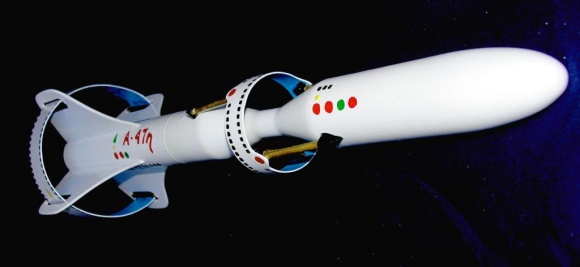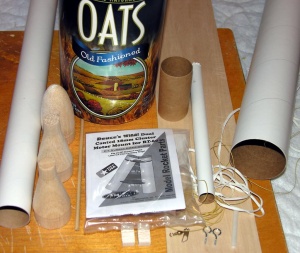Scratch Sapphire Queen Original Design / Scratch Built
Scratch - Sapphire Queen {Scratch}
Contributed by Geof Givens
| Manufacturer: | Scratch |
Brief:
The Sapphire Queen luxury cruise ship is the most elegant way to explore the
wonders of our galaxy. Enjoy memorable accommodations and service in the aft
ring, or pamper yourself with every imaginable comfort in the elite first class
cabins on the front ring. Enjoy a bottle of wine from our cellar as you and
your companion relax in your private viewing gallery and watch wondrous sights
drift by, even when we engage our state-of-the-art trans-dimensional quantum
hyperdrive to power you quickly and safely between ports of call. All guests
have access to our amazing variety of restaurants, shops, gardens, library, and
sports/recreation facilities onboard. Your cruise will visit many of the
greatest sightseeing highlights known in the galaxy, including the amazing
Martian canyons of Valles Marineris, the spectacular methane volcanoes of
Titan, the breathtaking mercury falls of Alpha Centauri's second planet, the
sheer beauty of the Opaline Nebula, the unimaginable riches of the golden
asteroid belt near Barac, and the sheer spectacle and power of the galactic
core. These and countless other wonders await you on your 18-day cruise that is
truly a once-in-a-lifetime experience. Contact your travel agent today.

This scratch rocket is a futuristic single-stage design using Fliskits dual canted 18mm cluster engine mount. Four traditional fins are pierced by a rear ring. There is also a front canard ring with unusual support strut design. Recovery is by parachute ejecting from the rear compartment. The front compartment can be used for payload if desired.

Construction:
Fliskits sent the engine mount quickly. The instructions were clear, the parts
were very high quality, and assembly was easy. I was very pleased with
Fliskits' product.
Constructing the rest of the rocket was fairly straightforward. The fins were made from basswood and required very little work. I always sand and seal as I go. Cutting the ring slots in the fins was difficult because of the tight round corners. A good shape was achieved with coarse sandpaper wrapped around a pencil or other round cylinder. The canard ring strut braces were fashioned by hand from scrap balsa and eight of them are needed.
The aft ring was made from a section of an oatmeal container. To stiffen this, I wallpapered the interior with thick paper and white glue. Alignment of the aft ring and its struts within the fin slots must be done carefully to ensure a symmetric fit. The fore ring is even trickier since it has three axes of potential asymmetry. I glued the two bottom struts, waited 5 minutes, and glued the top two while the first ones were still wet. This enabled me to do a little emergency sanding and nudge the whole assembly into a reasonably good fit before all the glue dried.
Finishing:
The rocket was finished in gloss white with red, black, gold, yellow, and green
details. I made stamps out of felt, adding "handles" made from scrap
balsa. These were used to make the windows and many of the other detail shapes.
The A-47eta vessel number was cut into a scotch tape mask on wax paper. Then
the mask was transferred to the rocket for painting. Fingerprints, mistakes,
and a collapsing painting jig necessitated various touch ups. Two coats of
clear gloss went over the top. The gloss made some of the detail paint run, so
I had to touch up and re-gloss. Because of all the touch ups, the final finish
appears a bit amateurish of you look carefully, but it looks fairly good from
arm's length or in photos.
Flight:
Swing tests indicated 1oz of weight should be added to the nose cone, bringing
the final weight of the rocket to 5.5 oz without motors. The wRASP software
suggested C6-5 would be the perfect engine, giving a fast boost, reasonable
altitude, and ejection right at apogee.
The first launch was on two C6-5 motors, friction fit into Fliskits' mount. The rocket got stuck on the launch rod momentarily, shuddering in place before breaking free and leaping into the sky. Boost was flawless--straight with no spin. The design is clearly very stable.
Recovery:
Since the initial thrust was partially expended on the launch pad, maximum
velocity and altitude were both lower than expected. Thus the ejection delay
was too late, giving us a hair-raising post-apogee ejection. Recovery was
otherwise fine, with the rocket landing unblemished about 50 feet downwind in
the dirt in a baseball diamond.
Inspection after the launch was also interesting. Both motors had ignited and the pause on the launch pad had created two "blast craters" where the engines had blown away the gravel and dust on opposite sides of the blast shield. My kids loved these craters most of all. We're looking forward to a higher launch next time on C6-5's with a better release from the rod.
Summary:
This was a fun and easy scratch build. I'm looking forward to more successful
launches.
 |
 |